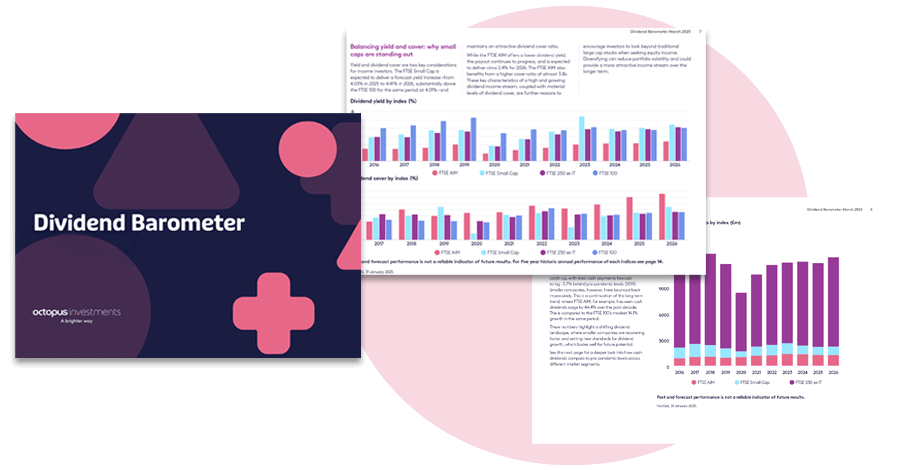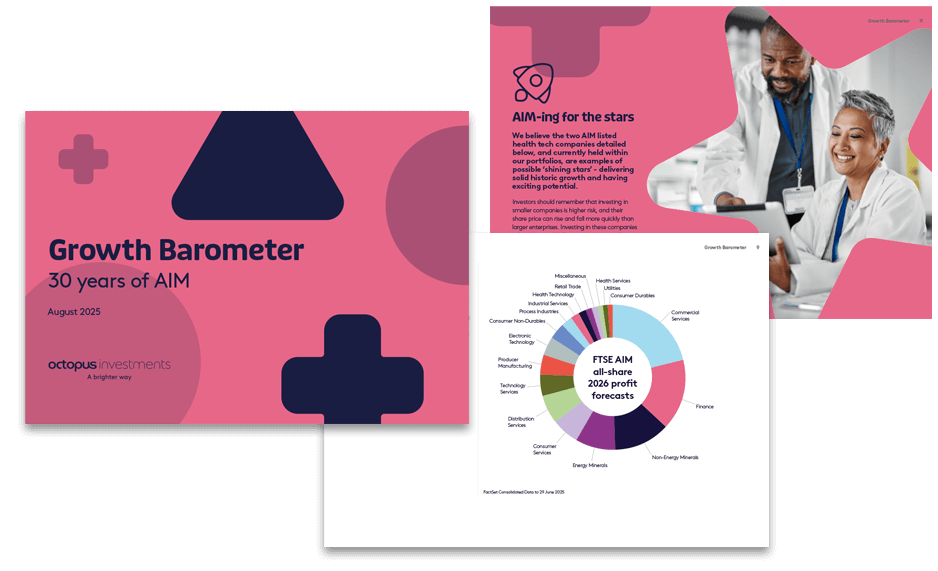Fern is a portfolio company held in the Octopus Inheritance Tax Service. Fern is managed by Octopus and is wholly owned by investors in the Octopus Inheritance Tax Service. It has a diverse trading strategy, focusing its business activities in areas where Octopus has extensive experience. One such area is property lending. In this blog post, D’mitri Zaprzala, Head of Residential Lending, explains Fern’s approach to the sector.
Property lending has been an important part of Fern’s activities for more than a decade now. In that time, it has lent more than £1.8 billion across over 1,800 loans.
Property lending once accounted for the majority of Fern’s business, but as the company has grown it has added new divisions in order to continue to target predictable growth for shareholders.
The amount Fern lends has remained meaningful, at £382 million. Today, property lending accounts for roughly a fifth of Fern’s business.
As I’ll be outlining, property lending is a significant part of Fern’s strategy for good reason. Property lending is an ideal sector for meeting Fern’s objectives.
Meeting Fern’s objectives
Property lending was selected by Octopus for its ability to generate predictable short-term revenues, and for its liquidity. Fern lends directly to experienced property professionals and receives all of the revenues generated from each of its loans, including arrangement fees, interest and early repayment fees.
As well as offering a predictable yield, property lending is ideal for Fern because of its asset-backed nature, inherent liquidity and the diversification available across borrowers and sectors.
A conservative lending criteria
Fern’s lending business is designed to mitigate risk rather than to target maximum returns. This is achieved in four ways:
- Conservative loan to value ratios
- High volume of smaller loans
- Sector diversification
- Geographical diversification
Conservative loan to value ratios (LTVs)
Each of Fern’s loans is secured against a property in almost every case by a first ranking charge. This means Fern’s loan principal plus interest has to be repaid in priority before anyone else by the property owner in the event the property is sold or remortgaged. It also means if Fern’s loan repayment terms are not met, Fern can take ownership of the property and sell it to discharge its debt, before returning any remaining balance to the borrower.
Fern only lends at conservative loan-to-value (LTV) ratios. Loans are only made after an independent valuation from a Royal Institution of Chartered Surveyors (RICS) member. This means that Fern can be confident that the property against which each loan is secured is worth significantly more than the value of the loan. The maximum loan that Fern will issue is 70% of the property’s value, and at the time of writing, the average LTV of Fern’s property lending business is 63%.
High volume of smaller loans
It is cost efficient to make a few very large loans as little investment resource is needed to find a small number of opportunities and manage them on an ongoing basis. However, this approach would significantly concentrate the risk to the lender.
Fern therefore makes hundreds of smaller loans and typically has between 150 and 200 separate loans live at any one time. This requires more specialist resource to manage, but provides Fern with a smaller amount of risk in each loan should it fail.
Its loans are also spread across hundreds of different borrowers, greatly reducing counterparty risk and the impact of any one borrower defaulting on their loan.
Sector diversification
Our property finance team specialises in short-term lending to professional property developers and experienced landlords. Octopus identifies opportunities for Fern across four different sectors within property lending: residential bridging, residential development, refurbishment, and commercial bridging. All of these sectors are underserved by traditional high street banks, meaning high quality borrowers seek the flexibility and certainty that Octopus and Fern can provide.
Geographical diversification
Octopus has designed a strategy for Fern which mitigates risk as far as possible. As such, Fern does not lend in locations where Octopus is not confident that property values will be robust, even where the yield Fern could make is very attractive. For example, at present Fern rarely lends in prime central London but instead focuses on popular towns and city locations across the UK. We have increased the level of business we write outside of London and the South East over the last few years.
Successful strategy
Anyone can lend money, so the measure of success should be taken by looking at how much has been repaid, and on what terms.
Of the more than £1.8 billion that Fern has lent across over 1,800 loans over the last 10 years, almost 1,700 of these loans have been repaid totalling £1.5 billion. The loan book as at 31 October 2020 now stands at over £380 million. In terms of track record, Fern has only received less than its capital initially lent in two of these loans, losing £6,000. Eight loans were repaid with some impairment to the coupon.
Liquidity
A typical property loan made by Fern is between three and 36 months in duration. The average loan length (for the current book at the point a loan is made) is 20 months. This targets a healthy level of regular cash flow, allowing Fern to meet its liabilities, including meeting the liquidity demands of its shareholders.
This also limits Fern’s exposure to changes in the property market, as loans are made on a short-term basis, providing an ongoing opportunity to reassess the outlook. By way of example, Fern chose to change its lending criteria at the outset of Covid-19, imposing a 50% maximum LTV limit.
An expert, award-winning lending team
Maintaining such a large lending business is a significant task. Octopus has a team of 70 experts in property lending who work out of offices in London and Manchester. The regionally based team works with brokers to find new lending opportunities, the team’s surveyors are responsible for assessing the value of properties, and our in-house lawyers oversee agreements and disputes with external support where necessary. The cost of this team is covered by the 2.5% service fee that Fern pays Octopus. All interest and fees from loans is paid directly to Fern.
Key investment risks
While we have a conservative property lending strategy and Fern operates a diversified business to mitigate certain risks, because the Octopus Inheritance Tax Service invests in one or more unquoted companies, investors’ capital is at risk. The value of an investment can fall as well as rise. Investors may not get back the full amount they invest.
Tax treatment depends on individual circumstances and tax rules could change in the future. The relief from inheritance tax depends on the portfolio companies maintaining their qualifying status.
Investors can request to sell their shares at any time, although liquidity is not guaranteed.
Where to find out more
To read more about the Octopus Inheritance Tax Service’s underlying assets, click here.
If you have a client you think may benefit from the Octopus Inheritance Tax Service, you can find more information about it here.











